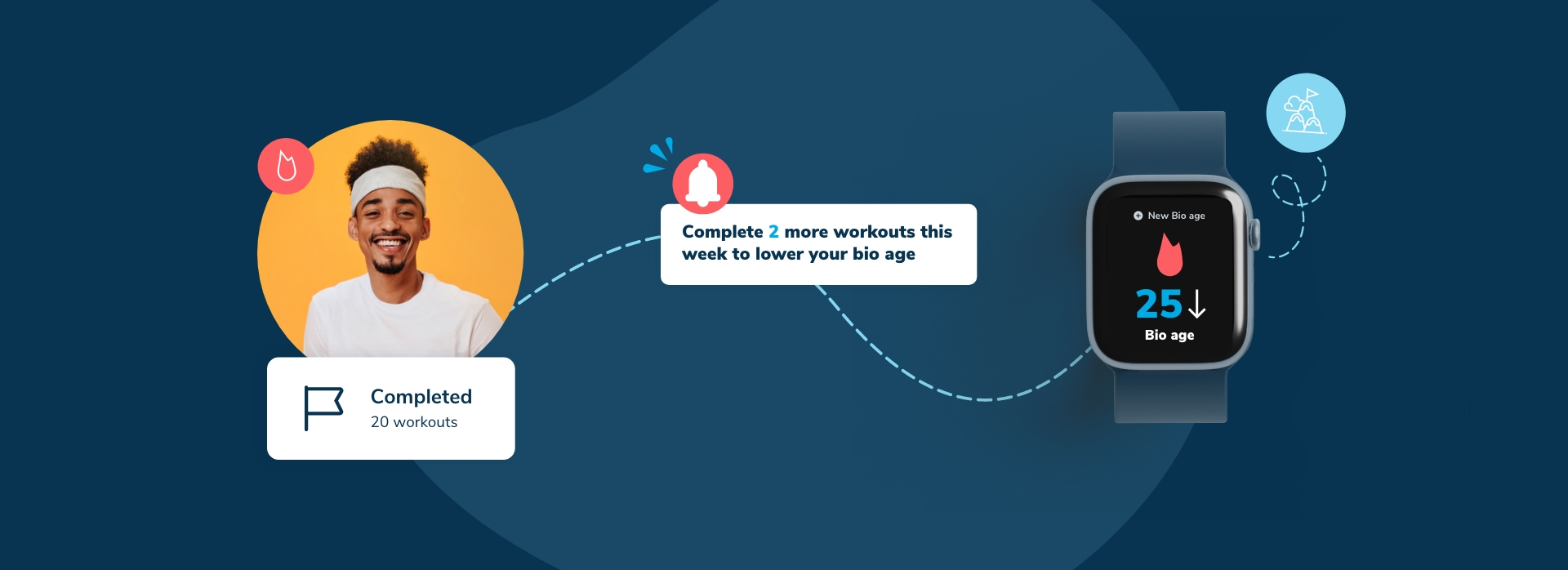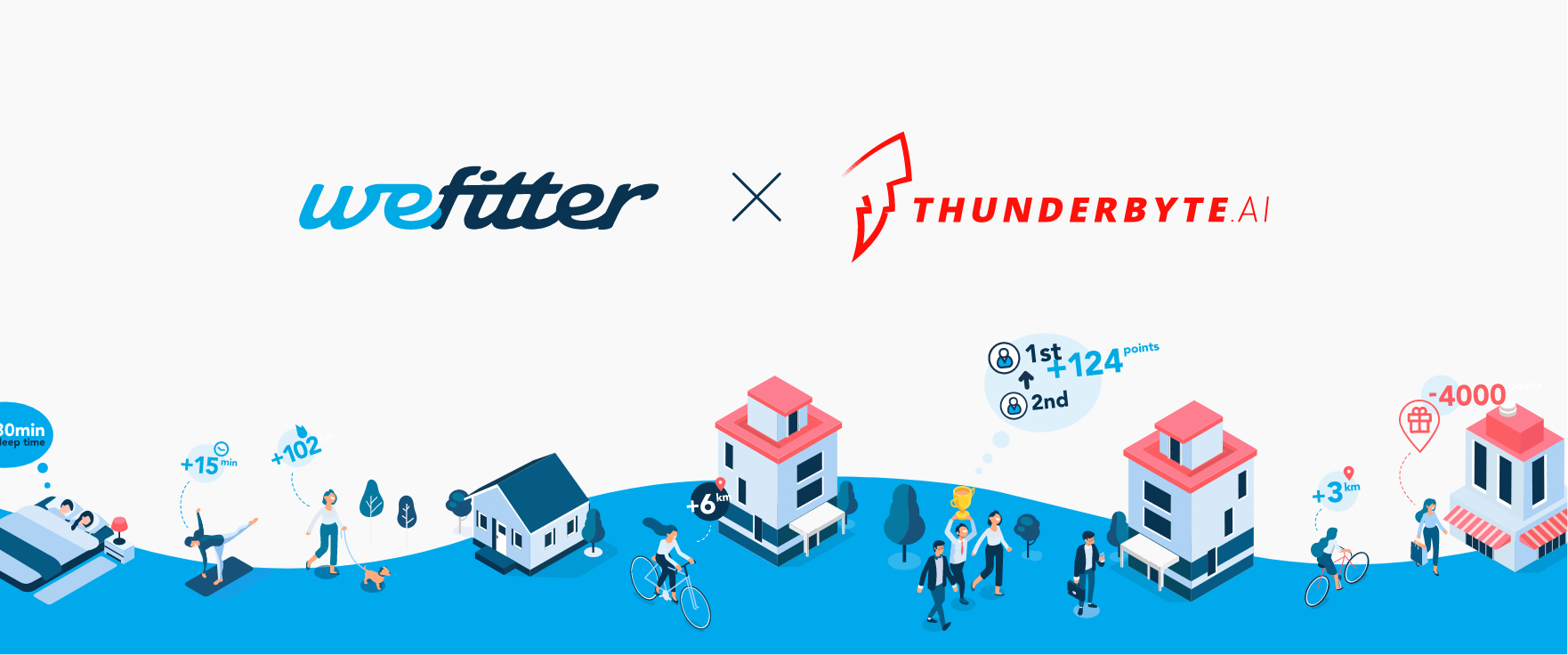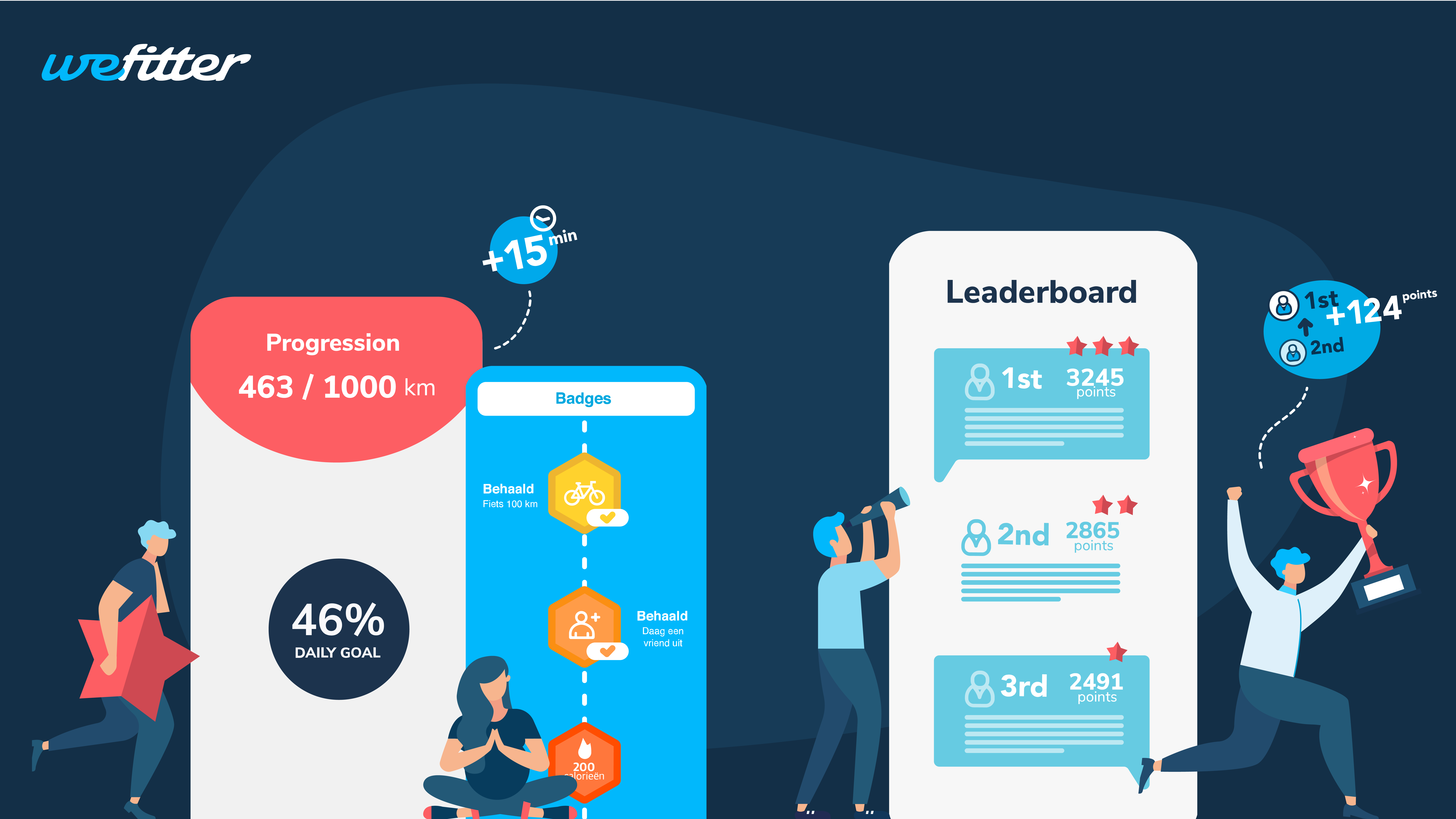
Age is just a number: WeFitter Bio Age
Age is just a number: WeFitter Bio Age
WeFitter is always looking to expand their services and functionalities. For instance, WeFitter is working with the Amsterdam UMC to gain insights into the vitality of end-users using a unique biological age score. In this blog, we will tell you more about the biological age score and its benefits.
What is a biological age score?
Starting from birth, everyone has a certain age, counted in days, months and years, which we call the chronological age or calendar age. Besides this age, there is also the ''real'' age, or your so called biological age. This is based on how fit and vital your body is.
Biological age is affected by several factors, that's why it's making it difficult to calculate this complicated formula. To calculate biological age, the factors; resting metabolism, age, muscle tissue, heredity, disease, medication and physical activity play a major role. The biological age score is a very important number for your health. It is believed that by responding to ageing processes, one can increase life expectancy and as an effect, reduce the biological age score. Today, the ability to measure the biological age score is being extensively tested by wearable data and AI-applications based on movement patterns.
Once you have an increased biological age, there is an increased risk of lifestyle diseases such as type-2 diabetes, hypertension, cardiovascular disease and obesity. In addition, a biological age that is significantly higher than chronological age means that the body ages faster than expected compared to peers. Based on this score, accurate dietary, lifestyle and supplement recommendations can be made targeting the outcomes of a biological age test.
What is the added value of Bio Age?
A biological age score reflects how people perform and how their lifestyle compares with the average outcomes of their real age group. The data obtained is compared with datasets from different age groups. A 50-yeard-old may match someone aged 38 based on their lifestyle. This results in a younger biological age score. This creates a positive feeling and motivation to keep this age that way. It creates awareness and increases the chances of living a long and healthy life. With a higher biological age score, this chance is lower. In addition, biological age is an important aspect of the social resilience needed for a happy longer life. A biological age score that is lower indicates more vitality. This correlates with higher social resilience.
The collaboration with Amsterdam UMC is focused on calculating the algorithm through fully driven data and using AI-technology. A process where science and technology come together. Keep an eye on our website for more information on this cool project!






